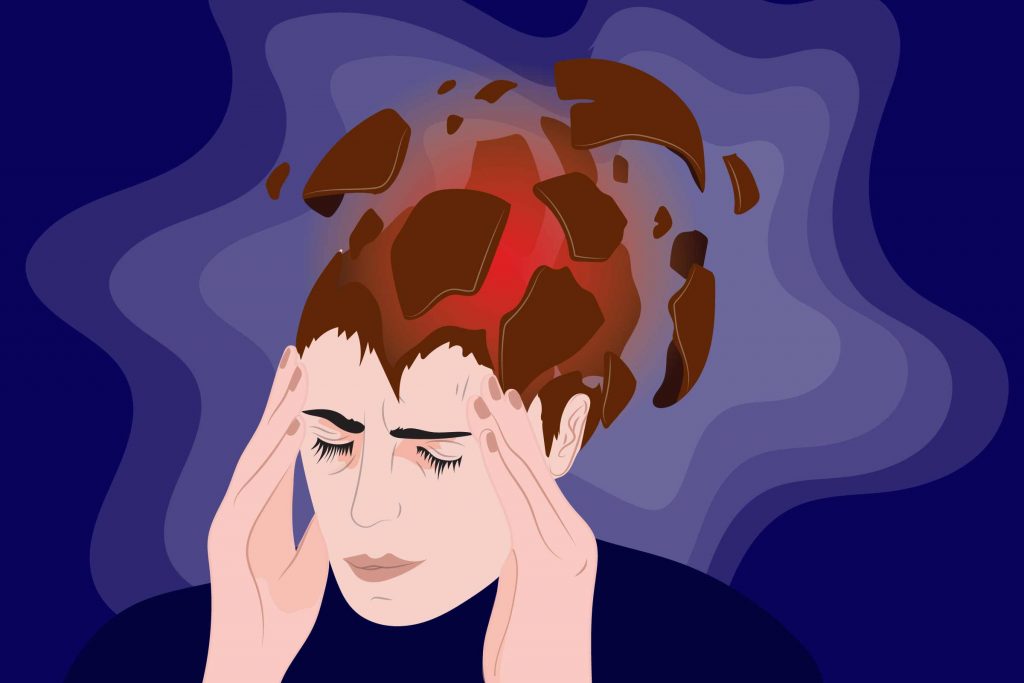Migraine is severe throbbing pain or pulsing sensation on one side of the head. It is a powerful headache with nausea, vomiting, and sensitivity to light and sound. Migraine headaches last for 4 hours to 3 days or sometimes longer. Women tend to have 3 times more migraine headaches than men. Age groups of 10 to 40 are affected more. Migraine headache interferes with your daily day activities.
Medication can help with migraine, they can reduce the pain. Self-help remedies, lifestyle changes, and the right medicine can help you to treat your migraine.
SYMPTOMS :
Migraine can begin at any age but it goes through 4 stages – prodrome, aura, attack, and postdrome. Not necessary that all people with migraine go through these stages.
Prodrome :-

You can feel the symptoms before the migraine starts. 1 -2 days before you get the warning sign and symptoms of migraine such as –
- Increased thirst
- Frequent urination
- Constipation
- Mood changes
- Neck stiffness
- Frequent yawning.
Aura :-
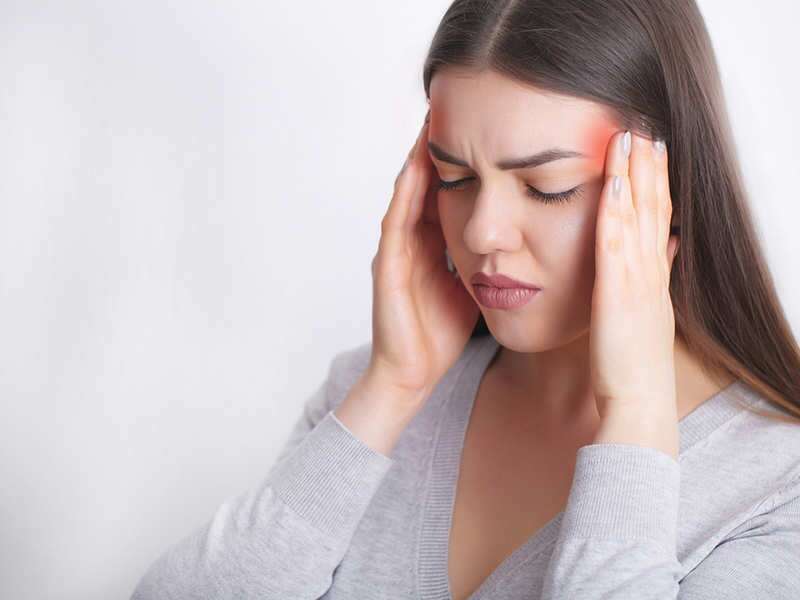
Aura occurs before and after migraines. Auras are reversible symptoms of the nervous system. There is usually visual disturbance with some other disturbances too. The symptoms last for 20 minutes to 1 hour.
- Seeing different shapes, bright spots, and flashes light which is known as visual phenomena.
- Vision loss
- Needle pricking like sensation in arms and legs.
- Difficulty in speaking
- Numbness in one side of the body or face.
- Weakness in the body.
- Hearing sound and noises.
- Uncontrollable jerking or other movements.
Attack :-
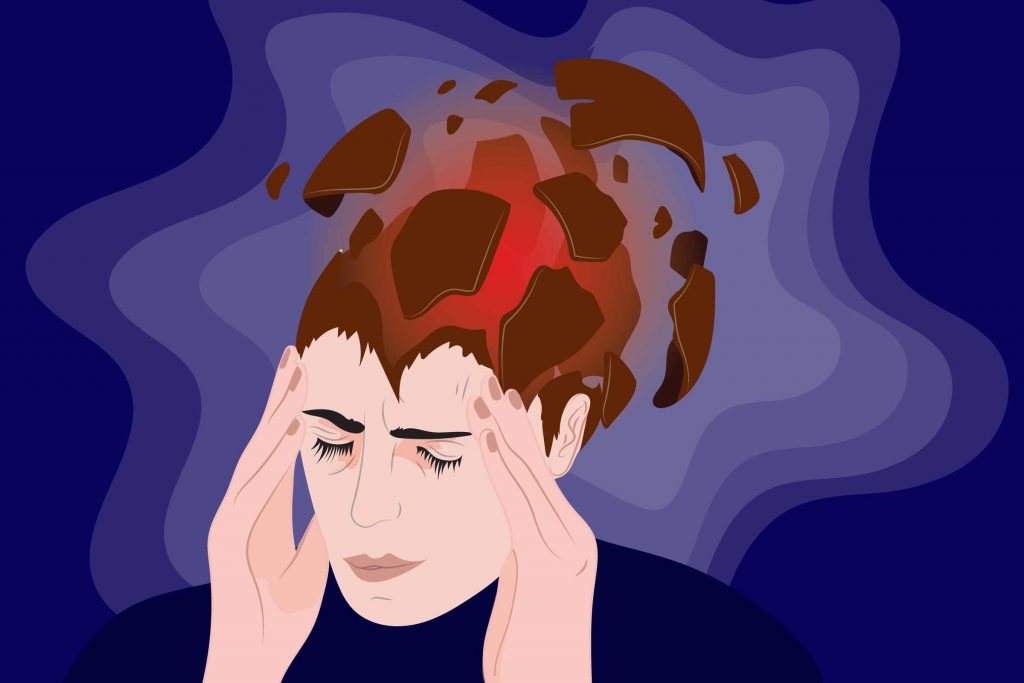
If the migraine is untreated then it lasts for 72 hours or it can strike several times in a month or rarely occurs. But it totally depends on person to person.
- Pain on one side of the head or both the sides.
- Throbbing and pulsating type of pain.
- Extreme sensitivity to light, sound, smell, and touch.
- Nausea and vomiting.
Post-drome :-
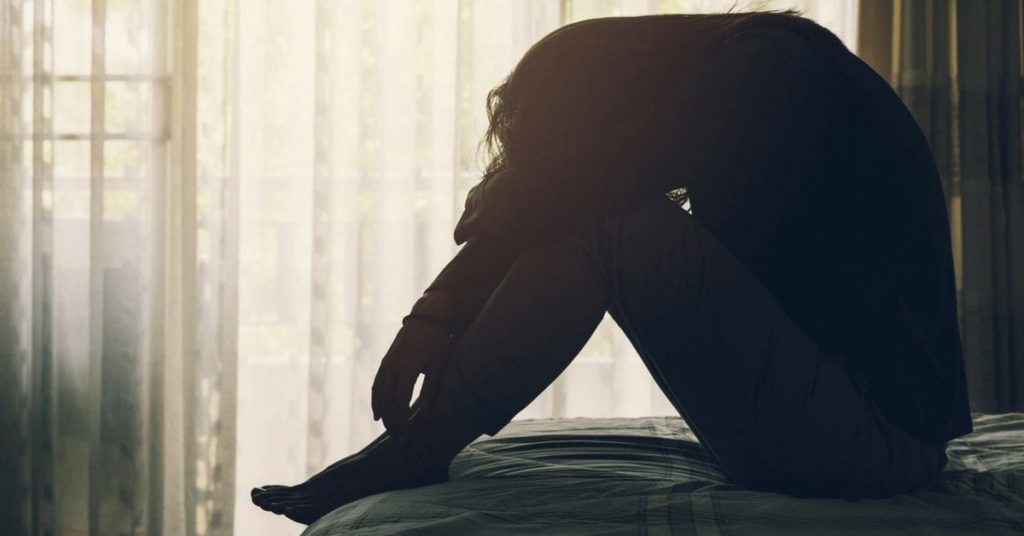
After the migraine attack, people feel drained, confused, and washed out. They experience weakness physically and mentally too. But some people feel uplifted or elevated. By sudden head movements, the pain can come back.
CAUSES :
The cause of migraines is not understood properly. Genetics and the environment play an important role in causing migraines. Changes in blood flow can also cause migraines. The nerve cell sends signals to the trigeminal nerve that releases chemicals such as serotonin and calcitonin gene-related peptides (CGRP). CGRP swells up the blood vessel lines. Then neurotransmitters create inflammation and pain.
Triggers –
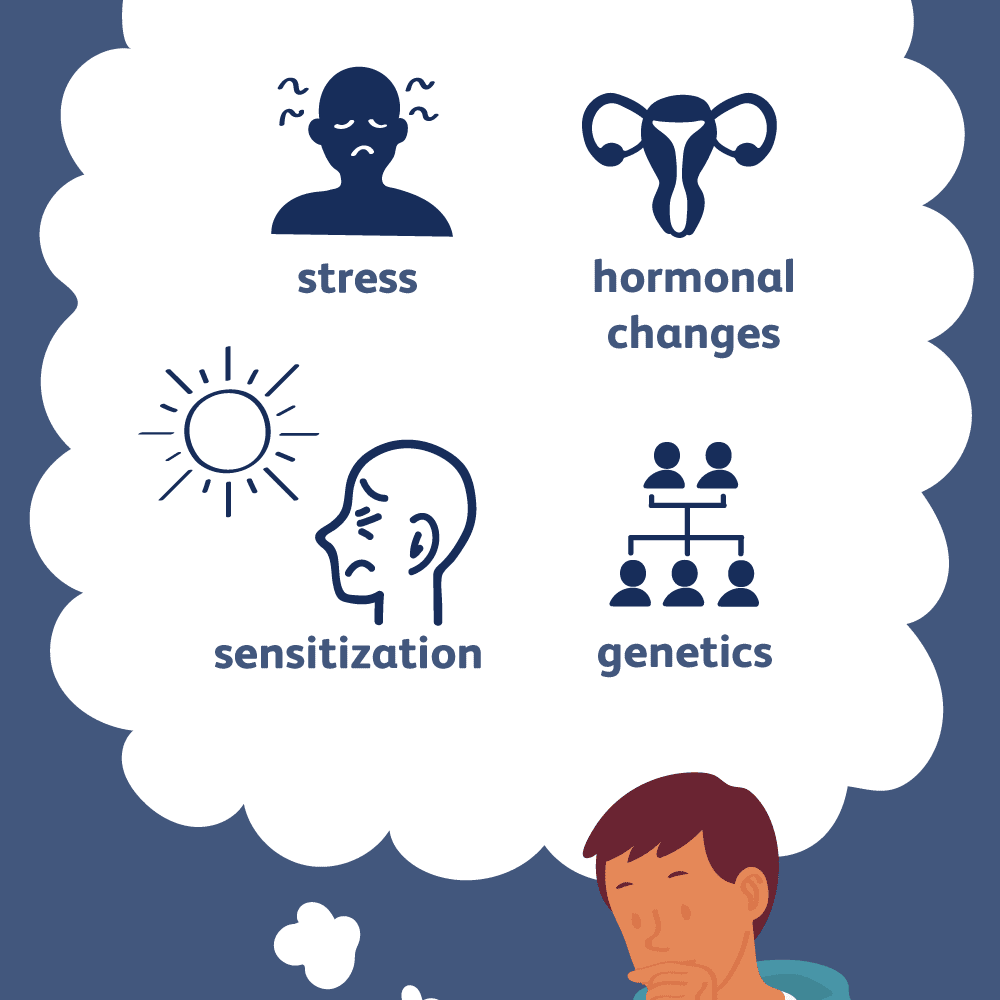
- Hormonal changes:- The change in estrogen levels, during or before periods, pregnancy, and menopause triggers a migraine. Hormonal medications such as oral contraceptive pills and hormone replacement therapy can worsen migraines. However there is always an exception, some women feel relief from this medication.
- Drinks:- caffeine and alcohol can trigger migraines. The body gets used to caffeine and alcohol, especially blood vessels, and when you don’t have any you tend to have headaches. That is why too much coffee and alcohol, especially wine, is not good for migraines.
- Stress:- The stress because work or at home can trigger migraines. As stress causes blood vessel changes that lead to headaches.
- Lights & sound:- Migraine can be triggered by sensory stimuli. Stimuli such as extreme light, loud sound, strong smoke smell, paint smell, perfume smell, etc.
- Sleep:- Disturbance in the sleep pattern or not getting enough sleep of 6 hours can trigger the migraine problem.
- Physical factors:- Intense physical exertion or sexual activity provokes the Migraine.
- Weather change:- Change in the weather can trigger the headache.
- Food:- Food such as aged cheese and salty processed items can trigger the migraine. Food additives such as nitrate- found in pepperoni, hot dogs, etc and monosodium glutamate (MSG ) is also responsible for migraine. Skipping meals and fasting can also affect Migraines.
Risk factors –

- Family history:- If your family has a history of migraine patients then you are most likely to have migraines.
- Age:- Migraine can begin at any age but it gets severe during the 30s and after that, the severity decreases slowly.
- Sex:– As mentioned before the women have 3 times more risk of having migraines than men.
- Hormonal changes:- Onset of menstruation can begin the headache and changes of hormones during pregnancy and menopause can worsen it. But migraine gradually improves after menopause.

